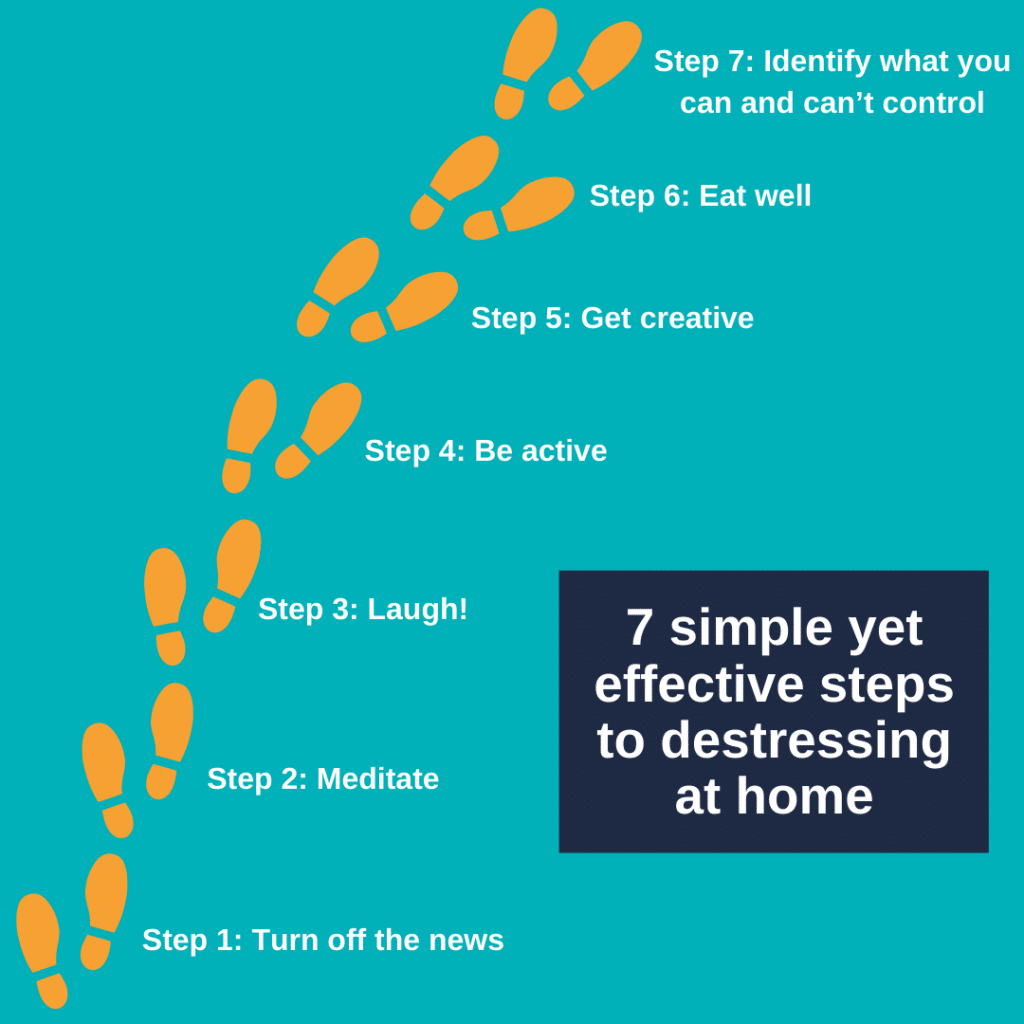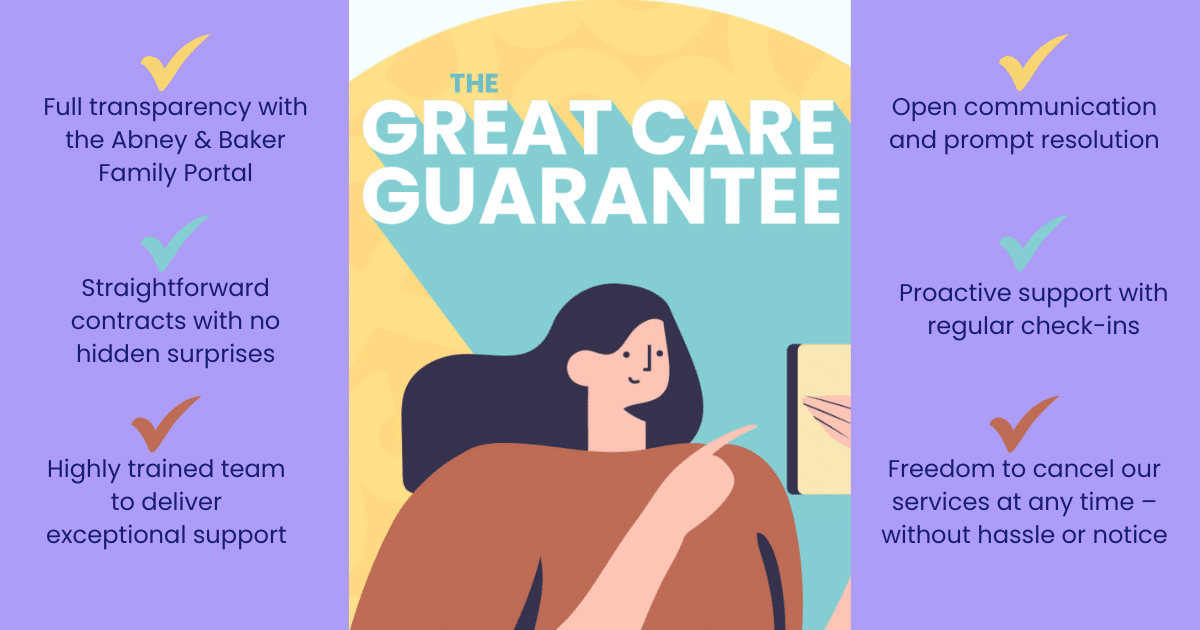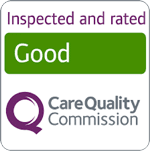Step 1: Turn off the news
Step 2: Meditate
Meditation is becoming increasingly popular with more and more people using it to relax or cope with stress. It can help you be more aware of your thoughts so that you are better able to manage them and not become as overwhelmed. It will help you feel calmer, more in control and more relaxed.
The websites below give more you information about meditation and how to get started:
- Be Mindful from the Mental Health Foundation offers information about mindfulness, including a list of recommended resources.
- Frantic World from Dr Danny Penman, author of Mindfulness: A Practical Guide to Finding Peace in a Frantic World offers a number of free resources and free audio-guided meditations.
Step 3: Laugh!
As they say, ‘laughter is the best medicine’. By watching a light-hearted film or TV series your body will release endorphins making you feel happy while increasing immune cells and infection-fighting antibodies.
Humour is a great natural stress-management tool. Laughter is known to relieve anxiety, lowers stress hormones, and helps you to calm down.
Step 4: Be active
The outdoors and fresh air are also natural stress relievers – the trees, wind, sky, and sight of flowers have a calming effect on your body and mind. Walking for a few minutes a day is known to alleviate depression symptoms and boost your mood.
Exercise won’t make your stress disappear, but it will reduce some of the emotional intensity you’re feeling, clearing your thoughts and letting you deal with things more calmly.
For more advice, take a look at this useful article from the NHS on how being active helps mental wellbeing.
Step 5: Get creative

Step 6: Eat well
Step 7: Identify what you can and can’t control
The final step but a hugely important one. It’s key to ask yourself if there’s anything you can do about the source of your stress. If there’s something you can do, then taking action will help reduce your anxiety. Worrying, complaining or wishing things were different are all understandable feelings and we shouldn’t discount them but if you focus on them too much, you’ll just amplify your stress.
Changing a difficult situation isn’t always possible. Try to concentrate on the things you do have control over. Look for the positives in life, make a note of the things you’re grateful for.
Good stress management involves building emotional strength, being in control of the things you can impact, having a good social support network and adopting a positive outlook.
Check out the NHS’s selection of stress-busting apps in the NHS Apps Library for extra support with positive thinking.
The key with stress it to not judge or criticise yourself for feeling that way, but to know that you are in control of taking positive steps to bring things into perspective and feel more relaxed.
Sources: Psychology Today, Age UK, NHS
If you’d like to speak to us more about care and support at home do contact us and we’ll get back to you.
Call 0333 043 4880 or email enquiries@abneyandbaker.com
Helping your loved one to continue living independently and confidently in their own home.
By providing a range of support at home, we’re helping many clients across Bath & North East Somerset and West Wiltshire retain their independence and stay in control in the comfort of their own homes.
Remember we’re always here if you want to chat about your care options. Just get in touch:
Call 0333 043 4880 – Email enquiries@abneyandbaker.com – Book a call here














